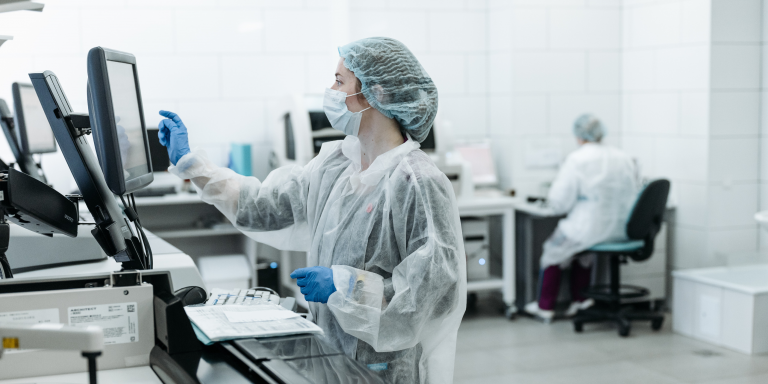
The COVID-19 pandemic highlighted the potential of AI and digital technologies to help manage crises and support resilience, but not all people and countries benefited equally. The International Telecommunication Union (ITU) has just released guidelines for solutions to ensure that digital information, services, and products are accessible to all, including people with disabilities, during the pandemic, highlighting some of the important aspects of combating health misinformation in the digital age.
As the UN’s specialized agency for telecommunications and ICTs, ITU’s mission is to ensure immediate access to communications where they are most needed in times of emergency and disaster. From the outset of the pandemic, ITU has worked to mobilize its global public and private sector members and the broader technology community around leading initiatives to emerge from the COVID-19 crisis, promote sustainable development, and rebuild a better post-pandemic world. In March 2020, it launched the Global Platform for Network Resilience, REG4COVID
ITU Secretary-General Houlin Zhao said:
“I call on all ITU members, from both the public and private sectors, to come together to build the best possible platform so that information and communication technologies can help defeat COVID-19 and make us safer, stronger and more connected.”
Responding very quickly and cooperating
To ensure that no one was left behind, immediate action was needed. ITU, the World Bank, the GSMA (the international association of mobile operators) and the World Economic Forum joined forces to launch concrete and immediate actions, from promoting network resilience to ensuring access to and affordability of digital services, to help governments, the private sector and every citizen deal with the COVID-19 pandemic. The “Joint Action Plan and Call to Action for Digital Development” issued in April 2020 aimed to make the most of digital technologies and infrastructure during the pandemic.
A series of webinars held in April and May 2020 on “Digital Cooperation during the COVID-19 Pandemic and beyond” organized by ITU in cooperation with the UN Secretary-General’s Special Advisor on Digital Cooperation, identified possible solutions as well as common approaches and strategies implemented by different countries and stakeholders.
Promoting artificial intelligence for health
New and emerging technologies that use artificial intelligence and leverage megadata offer new ways to address the pandemic. A series of webinars on Artificial Intelligence for Social Good, from the AI For Good program,(https://aiforgood.itu.int/programme/) explored promising use cases for this technology in health care and other areas in the face of COVID-19 and other global challenges. The goal of AI for Good, a platform initiated by ITU with the XPRIZE Foundation, ACM, UN agencies, and co-organized by Switzerland, is to identify practical applications of AI to advance the UN Sustainable Development Goals and to scale up these solutions for global impact. It is the leading action-oriented, global and inclusive UN platform on AI.
The Amazon Web Services (AWS) Disaster Response team supported AI for Good via its ML and cloud technologies. For example, it worked with the Medical University of Washington and the University of North Carolina to provide and scale disaster services in the midst of the COVID-19 pandemic, and used ML services to create chatbots that provide COVID-19 testing information, offer 24/7 medical advice, route patient requests to the appropriate teams, and scale these services to increased call volumes during the pandemic.
AI can enhance outbreak prediction and symptom classification, which is the subject of specific work within the ITU-WHO Focus Group on Artificial Intelligence for Health, a multi-stakeholder initiative to establish a framework and associated processes for benchmarking AI solutions for health. A new ad-hoc group of this Specialty Group aims to define best practices for the use of artificial intelligence in each phase of the life cycle of a public health emergency
Responding to the COVID crisis
The crisis has accelerated the adoption of the internet, with 4.9 billion people using it last year, representing 63% of the world’s population. While the internet has enabled business to continue through telecommuting and people to stay connected, the increase in internet usage and data consumption is putting great pressure on existing broadband networks, reducing internet quality and speed. The increased potential for misuse of digital technology (cyber attacks and misinformation) as well as the growing risks related to data privacy and security are recurring issues. Finally, 3.6 billion people still do not have access to the Internet, and the lack of connectivity and accessibility issues will become even more pressing. Expanding connectivity and promoting better use of digital technologies, such as telecommuting, e-commerce, distance learning, and telemedicine, is critical to help overcome the COVID-19 crisis, better prepare for the “new normal,” and help prepare for future pandemics.
Translated from L’UIT appelle à coopérer autour de l’IA pour renforcer la résilience mondiale









